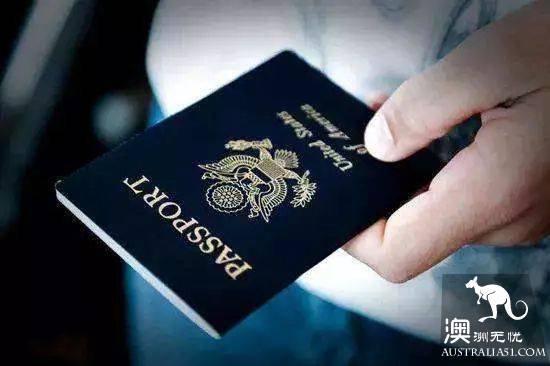In this issue, we will describe the specific differences between permanent residence and citizens, welfare and rights and obligations.
Permanent immigrants are those who live in Australia for long periods of time and are free to work, study and live without restriction in their country of origin and Australia. Because China does not support dual citizenship, naturalization means renouncing Chinese citizenship and civil rights, as well as all the rights and benefits of being an Australian citizen.

1, voting rights
The biggest difference between permanent immigrants and Australian citizens is the right to vote. Of course, this is not just the right to become an Australian citizen, it is an obligation.
After naturalization, every Australian citizen over 18 years of age needs to vote in any election, whether federal, state and territorial, municipal, or referendum, which gives citizens a sense of responsibility and participation in determining the future of the country. If you do not exercise your right to vote, you will face a fine of up to A $180.
2. Political participation
If all the politicians on the ballot are not satisfied, citizens can run themselves. All Australian citizens over the age of 18 can stand in the local council, state and territory councils, and federal assemblies.
It is important to note that you cannot have dual citizenship if you want to be a federal congressman.
3, military service, goverment job search
Many goverment jobs do not limit job seekers to Australian citizens, as can permanent immigrants from Australia.
But if you want to serve in the Australian Defence Force, you have to be an Australian citizen. In addition, there are other special goverment departments, such as the Ministry of Foreign Affairs and Trade, Border Defense and so on.
4. Serving as jurors in court
Court jurors are the "lucky" prize for a majority of Australian citizens who cannot be guaranteed one day. If chosen, they must go to court.
Although not everyone would like to sit in a courtroom, listen to it, be it drowsy, or have a verbal complaint debate with evidence, and join others in finding out whether the case is guilty or not guilty. But this is an obligation as an Australian citizen.
In some cases, the trial will last for weeks and must be attended. But don't worry, jurors have money, though it may not be much. The salaries of jurors vary from state to state.
5. More than 170 countries around the world are visa-free with Australian passports.
Australian passports, which have 170 visa-free countries, have become one of the best passports to travel abroad.

6. Obtaining overseas Australian consular assistance
Like citizens of any country, naturalized Congress provides consular assistance to Australian citizens in the first place if they encounter difficulties overseas. Of course, not all difficulties can go to the consulate unconditionally. Consular assistance is a special privilege, not a right.
What the Australian consulate can do is to change passports, provide information on doctors and hospitals in emergency situations, provide assistance in crimes such as violent attacks, visit after arrest, and provide advice after the unfortunate death of relatives overseas. Even in some extreme cases, emergency loans are offered.
7. A child can also become an Australian citizen.
Australian citizens can register their overseas-born children as Australian citizens who have the same rights as Australian-born citizens. Interested friends can read (what identity will Australian-born children get?)
8, you can apply for a university student loan
Although Australian permanent immigrants can enjoy much lower tuition fees than international students like Australian citizens, Australian immigrants are still unable to apply for university loans.
Only Australian citizens can apply for the HELP, an Australian higher education loan program that allows Australian citizens to pay after graduating on stable wages.
9. Truly "permanent" Australia
Permanent immigrants can, of course, remain in Australia indefinitely, but holders of permanent residency need to renew their resident return visa every five years if they leave Australia.
Moreover, if Australia's permanent residents were sentenced for more than one year, they would be at risk of permanent residence and deportation; and nationality could never be deprived (and certainly not absolutely, but more difficult than the right to permanent residence).
10, simplified work visa to the United States and right of abode in New Zealand
Australian citizens can live in New Zealand in all directions, without any time limit and without losing any rights. As an Australian citizen, if you have a professional job, you can apply for a simplified visa to work in the United States.
11. Adoption of children
Some Australian states and territories require adoptive parents, both or at least one of them Australian citizens.
12, representing Australia in sporting events
Many international competitions and sports require those representing Australia to be Australian citizens.


Nine welfare benefits in Australia:
- Pension policy for both 60-year-old women and 65-year-old men
- Universal access to free medical insurance (Medicare)
- Goverment provides unemployment benefits
- Low income allowance
- Free compulsory education in primary and secondary schools for 12 years
- Until the child is eighteen years old, he or she is entitled to support expenses and allowances
- Interest-free goverment loan for university tuition
- After 18 years of age, the child is entitled to a student allowance
- Other benefits: childbirth allowance, multi-child allowance, unmarried parent allowance, single parent allowance, etc.
From the welfare policy point of view, new permanent residence visa holders are not allowed to apply for unemployment benefits, emergency comprehensive benefits and student allowances for the first two years, and other benefits are the same, such as free primary and secondary education, student loans, free medical care, and so on. After two years of holding PR, all Australian benefits are available.
After getting the PR, you can apply for Australian nationality in accordance with certain conditions. It is important to note that naturalization requires each individual to apply alone, and not a family to apply together. If the wife has lived for 4 years, the wife may apply; if the husband is not full, he may not apply.
For Chinese naturalized in Australia, it means renouncing Chinese nationality. In the future, you need to apply for a visa to and from China. This is a very difficult choice for many old immigrants.
So apply for immigration or naturalization, please seriously consider!

